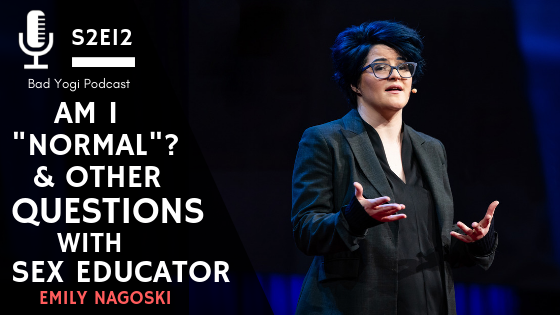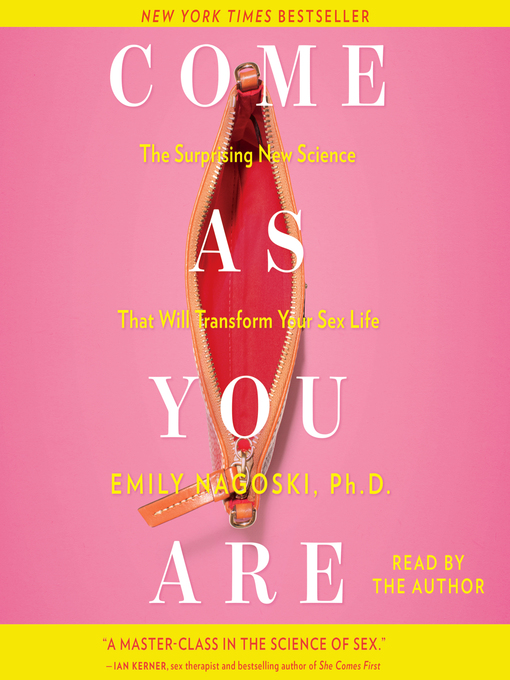

We all have the same parts in different arrangements, and understanding the biology will help you feel normal, because you are.Sex isn’t a drive, nothing bad happens to you if you don’t have it the way something bad happens if you don’t eat or get too cold.

“The process of becoming aroused is the process of turning on the ons and turning off the offs.” -Emily Nagoski on Oh Joy Sex Toy


She talks sensitively about trauma, and how with the rates of violence against women, discussing trauma is inextricable from female sexual health (but she does give warnings if you want to skip those sections). This ties into her model of expecting, enjoying, and eagerness, which describes different stages or types of arousal, and she explains how to use your awareness of it to understand what’s going on with your body. It does not indicate whether or not you’re enjoying yourself, and vice versa. A genital response means your body has noticed something sexually relevant. The second thing is the idea of nonconcordance. It sounds obvious but in practice it’s not, especially with the way we and the media talk about sex, as something overwhelming and irresistible (especially for men but as a desirable way to do it for women). Basically, no matter how sexy the situation is, you’re not going to want to have sex if something is putting you off of it. Most people, if they want to enjoy sex more, try to turn on more ons, but they’d usually have more success if they turned off more offs. The first is SES/SIS, or “the gas and the brakes.” The ons and the offs. There are two models that were new to me and form the scientific core of the book. The things she explains are actually old, they’ve been around almost thirty years and originate with sex researchers, and they just haven’t made it into the mainstream discourse yet (largely because, as she puts it: “ugh, patriarchy.”) I’m suspicious of anyone claiming to have “discovered” a new system that will solve everyone’s problems with “one weird trick they don’t want you to know about,” but Dr. I finished it going “omg, I need to get a copy of this for everyone I know.” I’m not that rich, so I’m reviewing it instead and telling you to check it out. I’ve read a lot of books on sexuality, but Come as You Are: The Surprising New Science that Will Transform Your Sex Life by Emily Nagoski, published in 2015, actually legit has surprising new stuff in it that I hadn’t heard about before. I think framing the question the old way was limiting the books I could meaningfully review. (I’ve decided to transform the “Is This Feminist?” series into a series of Feminist Friday Reviews.


 0 kommentar(er)
0 kommentar(er)
